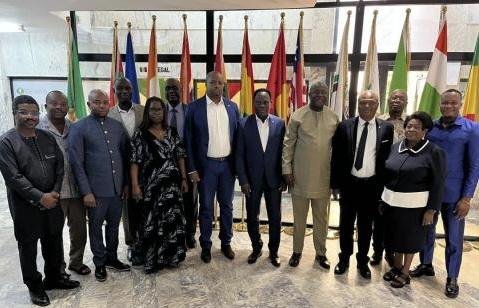The West African Health Organisation (WAHO) has emphasized that groundbreaking research will remain ineffective if not communicated beyond laboratories and academic circles. The organization’s Director-General, Prof. Melchior Aissi, made this clear during a webinar themed “Communicating Science with Impact: Mastering the Art of Oral and Poster Presentations,” held as part of activities leading up to the International Lassa Fever Conference scheduled for September 8–12 in Abidjan, Côte d’Ivoire.
The call comes at a critical time, as the rising threat of Lassa fever and other viral haemorrhagic fevers exposes the danger of fragmented, country-specific responses. Experts agree that West Africa must adopt coordinated, long-term preparedness strategies to build resilience, rather than relying solely on short-term emergency measures.
According to Aissi, while research is the foundation of medical progress, especially in tackling neglected tropical diseases such as Lassa fever, its true value lies in how effectively it is communicated. “Our researchers produce outstanding work daily, but how many breakthroughs remain trapped in laboratories due to weak communication? How many innovations fail to reach the communities that need them the most?” he asked.
The upcoming second ECOWAS International Conference on Lassa Fever, hosted by WAHO and partners, will provide a platform for aligning regional research priorities, exchanging innovative approaches, and securing commitments for collective action to save lives. The event, anchored on six strategic pillars, underscores West Africa’s resolve to strengthen health security and respond decisively to emerging infectious disease threats.
Read also:
- Health ministry debunks exclusion of North-West patients from dialysis subsidy
- Lagos Government pleads with Doctors to halt strike as healthcare crisis looms
- Delta opens bids for major infrastructure, health projects
Aissi explained that the pre-conference webinar was designed to equip young scientists and health professionals with essential communication skills to transform technical results into messages that influence policymakers, donors, and community stakeholders. He also revealed that prizes for Best Oral Presentation, Best Poster, and Best Young Researcher would be awarded during the conference, aimed at encouraging scientific excellence and fostering communication-driven health innovations.
Public health physician and policy researcher Dr. Ermel Johnson further stressed the importance of effective visual presentations in scientific communication. He warned against common mistakes such as distracting animations, poor colour contrasts, and overcrowded slides, urging participants to embrace clear charts, consistent fonts, and purposeful imagery to keep their audience engaged. He encouraged researchers to rehearse thoroughly, familiarise themselves with the presentation venue, and maintain professional appearance and confident vocal delivery to project credibility and authority.
Both WAHO and its partners insist that the fight against infectious diseases like Lassa fever cannot be won by science alone. Success depends on the ability to translate research findings into policies, community awareness, and actionable interventions that safeguard the health of millions across West Africa.






